Opportunity economy: An inclusive economic system for new Bangladesh

The Opportunity Economy (OE) is not only an inclusive economic system, but a new paradigm. It is considered to be an alternative economic model making economic opportunities available to all citizens of a nation. Its definition consists of concepts such as inclusion in growth, which includes segments of the population who are excluded from economic growth, thereby increasing diversity by creating opportunities available to all to utilise their potential.
Many countries, affluent or impoverished, use the Opportunity Economy in a flexible way to meet their national economic and political goals. The goal is to benefit the underprivileged people in society as they do not have meaningful access to resources and education.
People, culture, and collaboration create the Opportunity Economy ecosystem that enables success in achieving the desired goals of the economy. Furthermore, the Opportunity Economy requires a holistic approach.
It addresses the issue of communities and individuals who are left behind owing to the political and economic systems of the country. This could be in terms of them not having adequate or proper access to education, skills training and job opportunities along with them being the victims of existing inequality in society. In many societies, like in Bangladesh, fascism and corruption defeated attempts to reach needy and underprivileged populations. If the OE is implemented in Bangladesh with a national mandate, it will recognise human potential, and open doors to creativity and innovation for all, thus creating opportunities for all to succeed.
The question of the Opportunity Economy arises because economic capitalism, trickle-down economics (supply side economics), fails to meet the aspirations of the masses in any society, whether it is affluent or impoverished. Trickle-down economics is defined as "economic policies that disproportionately favor the upper tiers of the economic spectrum", comprising of wealthy people and large businesses. US Vice-President Kamala Harris, also a 2024 presidential candidate, included the Opportunity Economy in her economic plan to meet the aspirations of common people, as trickle-down capitalism failed to meet the aspirations of people and communities who were left behind.
An Opportunity Economy is built on three pillars: first, there is inclusive growth, where all segments of the population or society have access to economic growth; second, there is access to education and skills development, meaning equal access to education, and skills to compete in the modern workforce; and third, entrepreneurship and innovation. When Dr Yunus said 'everyone in the world is an entrepreneur, he recognised the potential of individuals in villages and economically poor communities.
Among the countries implementing the opportunity economy are Singapore Denmark, Canada, New Zealand, and Sweden. These countries invest in creating opportunities for every segment of their societies and their primary areas of investment are education, skills training and supporting entrepreneurs and innovation.
Here is a list of alternative economic models that are being used to create opportunities and can be considered as OE initiatives:
1.Three Zero Economic System (Zero Unemployment, and Zero Net Carbon Emissions)
2.SDG (the Sustainable Development Goals)
3.OECD (Organization for Economic Co-operation and Development)-Bangladesh participates in UN sponsored SDG and is not a member of OECD
Three Zero initiatives-There are a few such significant initiatives under Dr Muhammad Yunus
Among these four approaches, the Three Zero Economic System and OECD initiatives are more aligned with Opportunity Economy than SDG.
Dr Muhammad Yunus's book, A World of Three Zeros: The New Economics of Zero Poverty, Zero Unemployment, and Zero Net Carbon Emissions, offers a new paradigm for an emerging economic system. The Three Zero Economy it speaks of is based on four key principles which are social business, microfinance, sustainable energy, and inclusive growth. It is a form of social capitalism, which incorporates "innovative social businesses designed to serve human needs rather than accumulate wealth".
The United Nations adopted the SDGs in 2015 and it consisted of a set of 17 goals to end poverty, protect the planet, and ensure peace and prosperity. The past corrupt Bangladesh government adopted the SDGs and showed that attempts were being made to achieve them. However, in the 2023 achievement report, there was no data on progress made, instead only reporting on goals to be achieved by 2030. All government departments, the parliament and the prime minister's office were involved. Yet, it did not involve the public and had no citizens' input, output, or reporting.
Thirty-eight member countries of the OECD created WISE (Centre on Well-being, Inclusion, Sustainability and Equal Opportunity) to focus on generating higher well-being, fewer inequalities, and better health for people. Though they consider GDP (Gross Domestic Product) as an important measure, they believe it fails to capture many aspects of human life along with activities in terms of well-being. They believe multiple measures are necessary to develop a holistic perspective, and as such, WISE reports include civic engagement, social connections, work-life balance, social safety, environmental quality, knowledge and skills, health, work and job quality, housing, and income and wealth. Businesses have a responsibility to make positive contributions to the society and meet stakeholder expectations and demands. In contrast, the SDGs are focused on development only. The OECD's comprehensive approach supports OE.
I believe that, under the leadership of Dr Muhammad Yunus, Bangladesh can be an ideal Opportunity Economy system with a public mandate. The country needs motivated, honest, and sincere people who are engaged in planning and implementing the new economy to create an inclusive and fair economic system that provides opportunities to all as the fruits of liberation.
Mawdudur Rahman, PhD is professor emeritus, Suffolk University, Boston, US. He can be reached at: [email protected]
Views expressed in this article are the author's own.
Follow The Daily Star Opinion on Facebook for the latest opinions, commentaries and analyses by experts and professionals. To contribute your article or letter to The Daily Star Opinion, see our guidelines for submission.
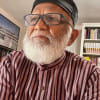
 For all latest news, follow The Daily Star's Google News channel.
For all latest news, follow The Daily Star's Google News channel. 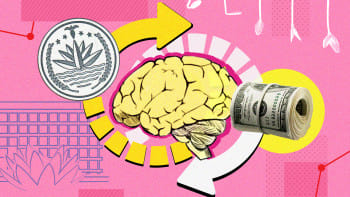
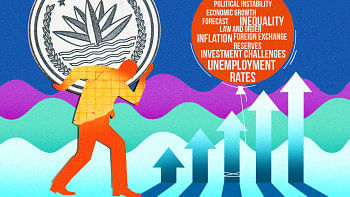
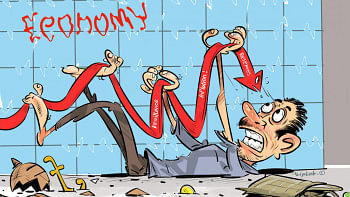



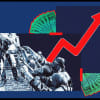
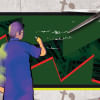
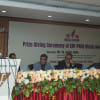



Comments